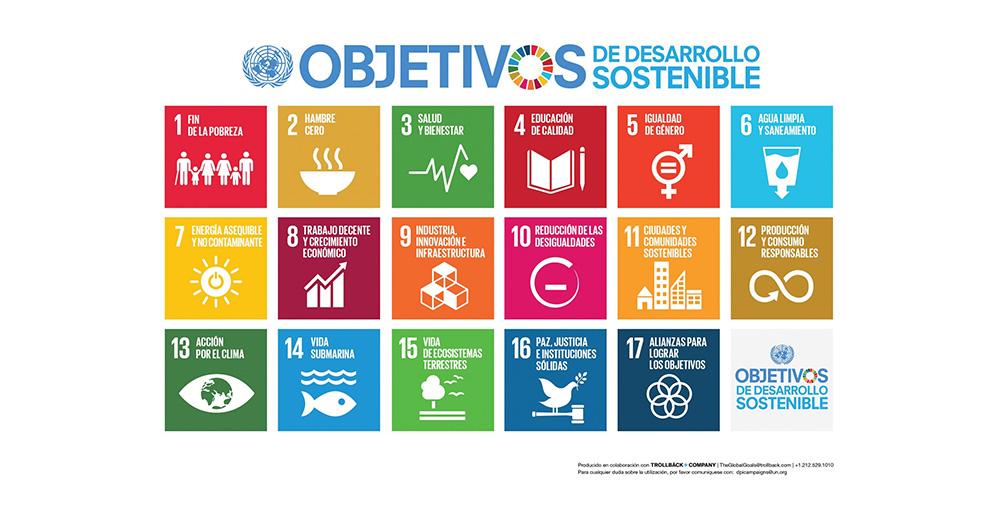
In 2015, the UN adopted the 2030 Agenda for Sustainable Development, an action plan made up of 17 global goals to eradicate poverty, protect the planet and ensure prosperity. This is what is known as the Sustainable Development Goals (SDGs).
In order to measure and evaluate the progress of the SDGs - in addition to their own development - accurate, up-to-date, sufficiently disaggregated, relevant, accessible and user-friendly data and statistics are needed. In other words, quality open data disaggregated by sex, age, municipality, etc. is needed.
In this regard, the UN itself has developed a set of indicators and statistical data aimed not only at monitoring progress, but also at informing policy and ensuring the accountability of all stakeholders. There are 232 indicators that refer to 169 targets. In addition, the Open SDG Data Hub portal provides geographically referenced data by target. Users can explore, analyse and use authoritative data sources on the SDGs to discover patterns, relationships and trends. For its part, the World Bank has an atlas where it presents interactive narratives and data visualizations on the SDGs, using its World Development Indicators database as a primary source.
But what if we want to delve deeper into what is happening in our country with respect to meeting the Sustainable Development Goals?
Resources related to the Sustainable Development Goals in Spain
Several organizations publish open data on the SDGs in our country. Below, we show you several examples at national and regional level.
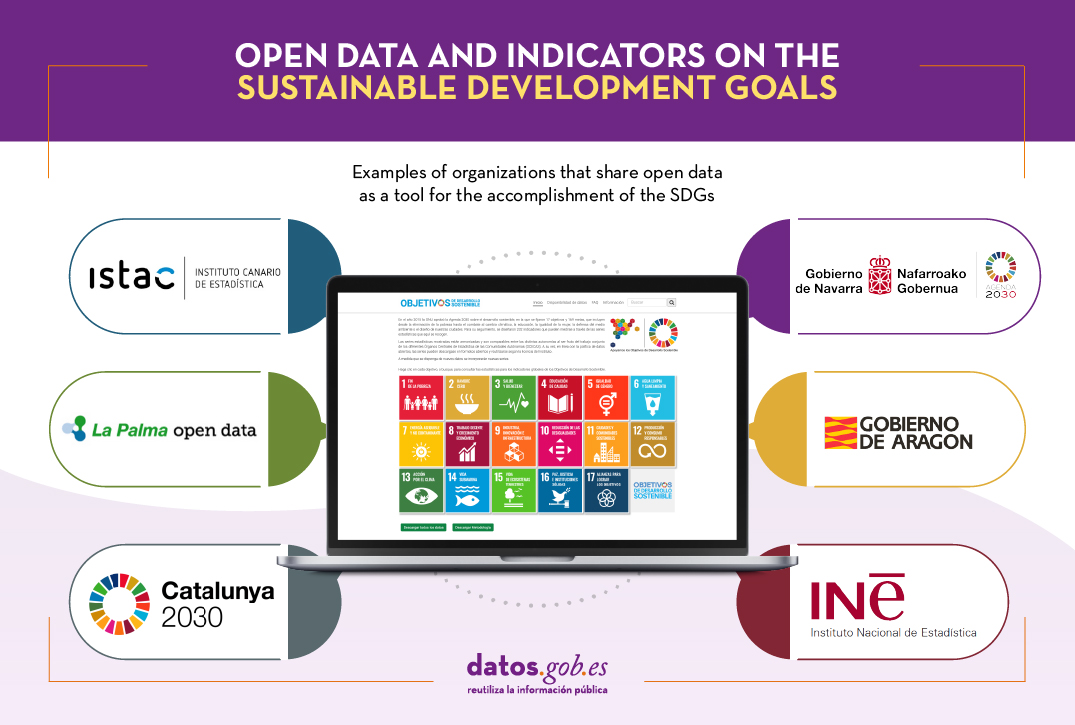
National Statistics Institute (INE)
Through its website, the INE has launched an electronic platform with updated statistical information about the global indicators established by the UN to monitor compliance with the SDGs.
When entering the available sub-indicators, the evolution of the indicator is shown graphically and, when possible, the breakdown by Autonomous Communities, age and sex. Data tables can also be accessed and downloaded in various formats (XLS, CSV, PC-Axis, etc.). These data are also available in our data catalog.
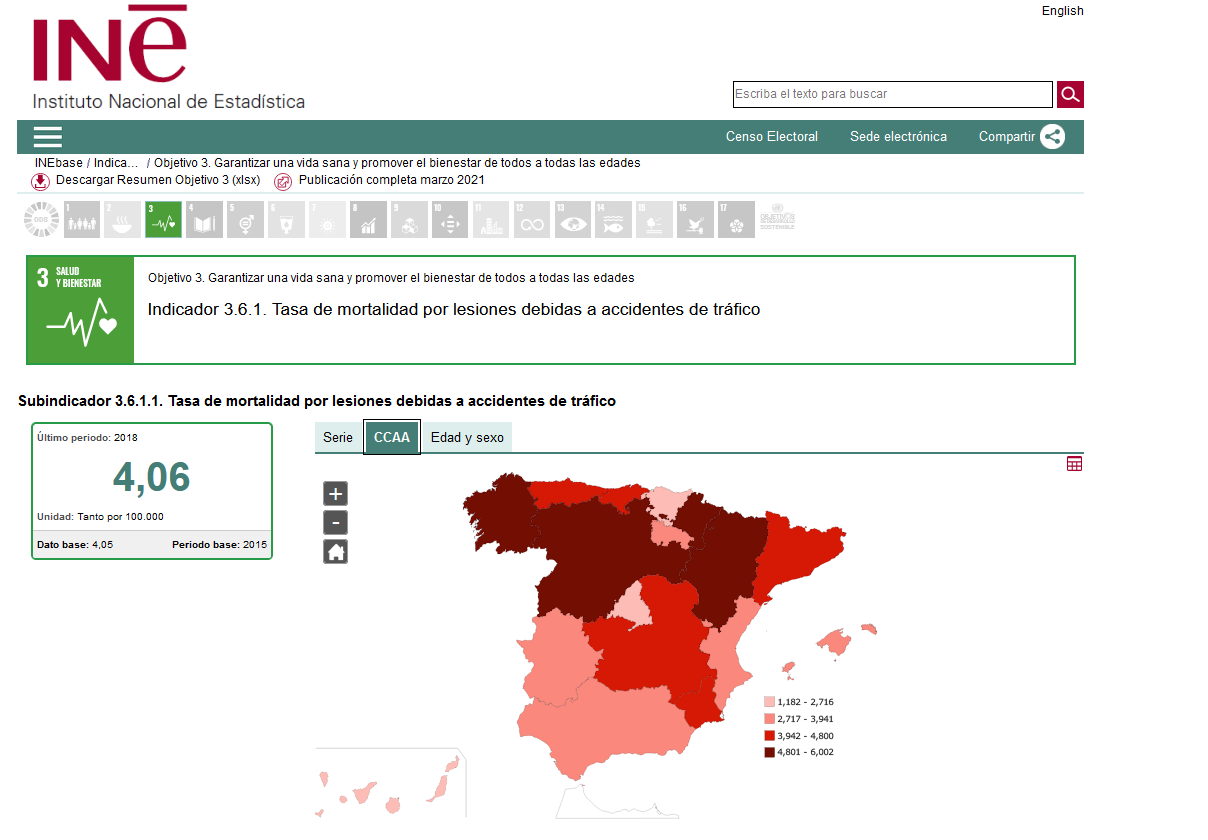
Canary Islands
The Canary Islands Statistics Institute (ISTAC) publishes in open format the indicators of compliance with the SDGs in the Canary Islands. The statistical series shown are harmonized and are comparable between the different autonomous regions as they are the result of the joint work of the different Central Statistical Bodies of the Autonomous Communities (OCECAS).
The ISTAC has created a tutorial showing how to reuse the data hosted in the application.
You can download the data from the platform itself or here.
Navarra
The Government of Navarra has launched a website to show its progress in achieving the Sustainable Development Goals (SDGs). It shows the activities being carried out to meet each of the 17 goals and their impact through graphs and indicators that show the region's progress in the different areas. It includes summaries by region. The data can be downloaded here.
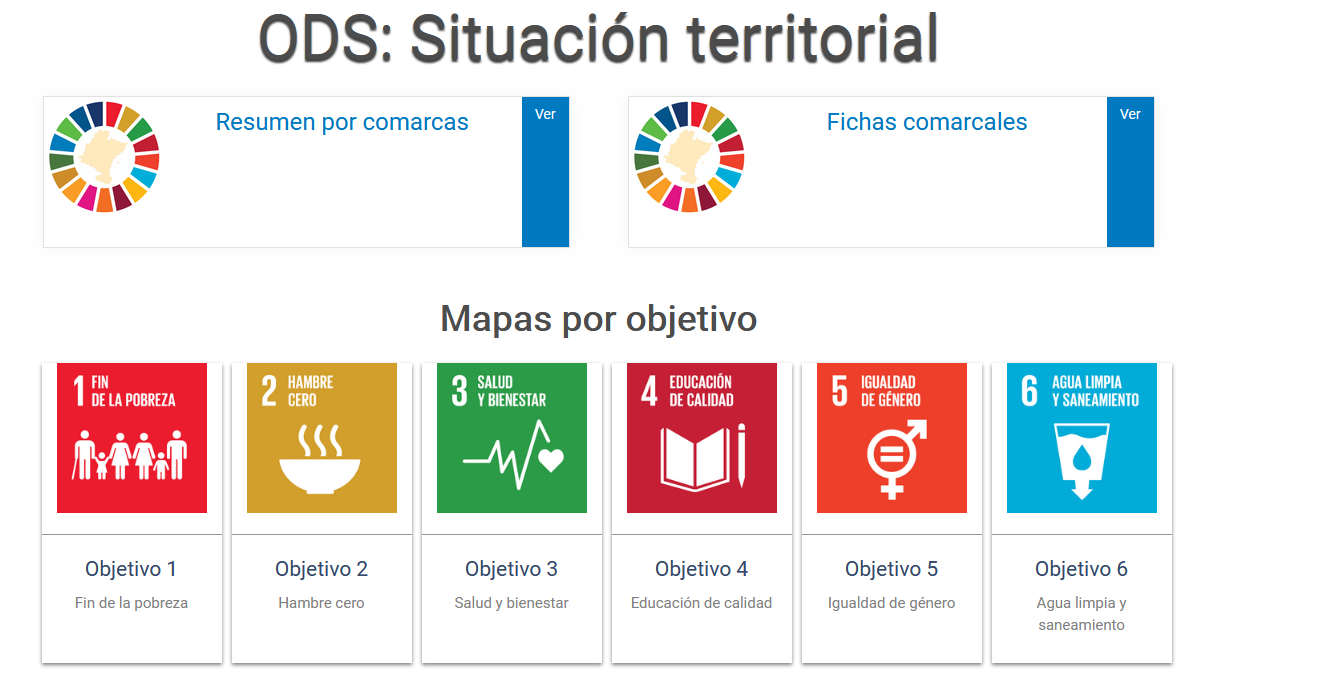
La Palma
The Open Data La Palma portal allows you to explore the available data based on the categories of the Sustainable Development Goals (SDGs). On the homepage of the portal you can click on the image of each goal to see the available data related to it. It is not about indicators, but a different way of organizing the available data.
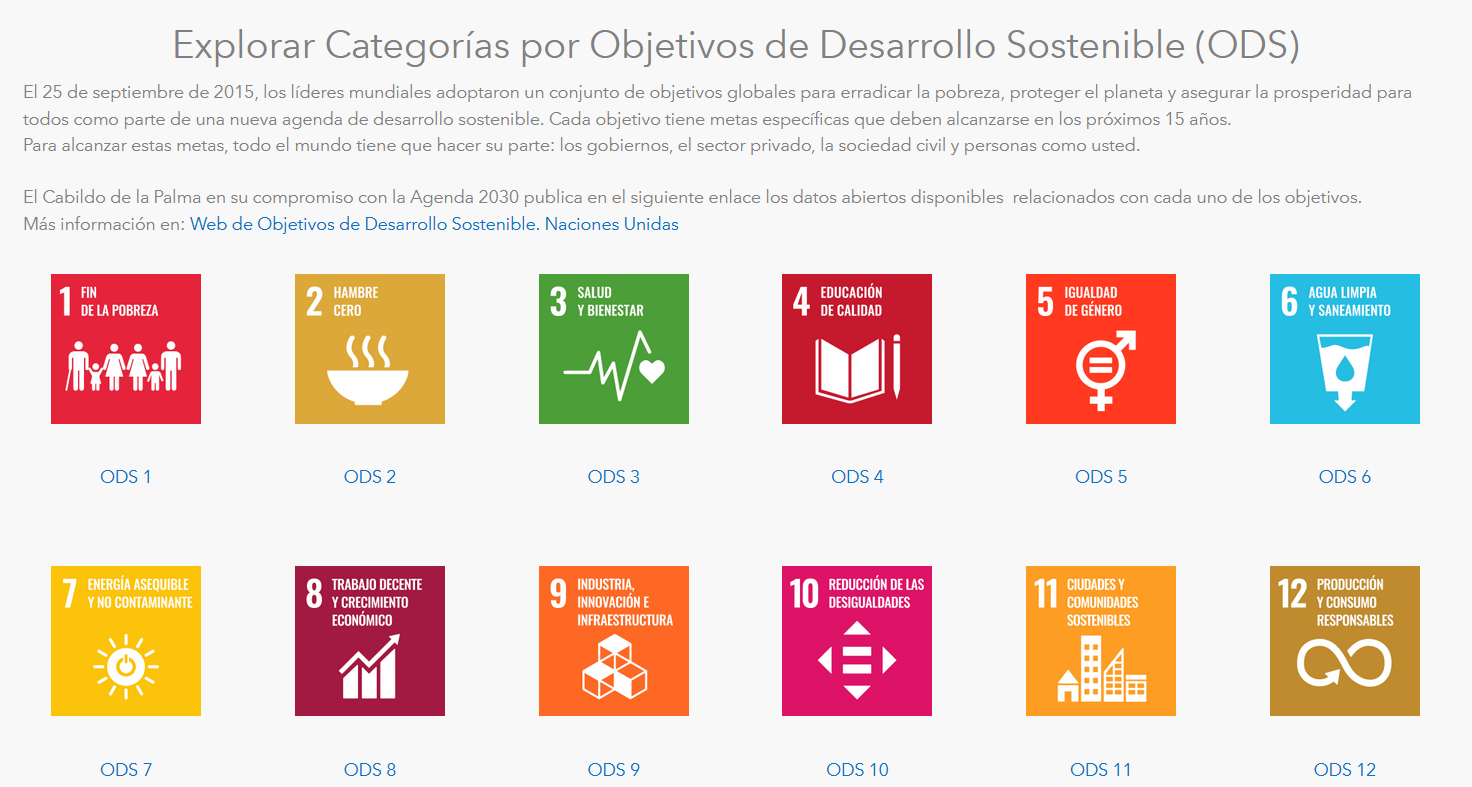
Aragón
Thanks to the work of the Aragonese Institute of Statistics, this website has been created where you can access different resources related to each of the objectives, including an Excel file with all the regional indicators. The methodological sheet is also available in Word format.
Catalonia
Since 2019, Catalonia's annual statistical action programs incorporate in the official statistics the development, maintenance, updating and dissemination of the integrated system of SDG indicators for the region. To do so, they take as a reference the indicators published by Eurostat and their criteria of quality, robustness and methodological adequacy. On this website you can see the results and download the data in CSV format.
In addition to these examples, there are many initiatives that also share open data on compliance with the SDGs on their websites. This is the case of Andalusia and the Basque Country.
In short, open data is essential for monitoring the progress achieved in the different programs. Therefore, more and more organizations are publishing data in this sense, data that are essential to know the inequalities and that policy makers can seek more accurate solutions. This will help advance implementation and the goal of achieving a fairer world for all.
Content prepared by the datos.gob.es team.
Buenos días,
La comunidad gallega también tiene una web donde publica los datos para Galicia de los Objetivos de Desarrrollo Sostenible. Se pueden consultar en esta aplicación del Instituto Galego de Estatística, también desarrollada con una herramienta opensource: http://www.ige.gal/Shiny/Agenda2030/
Muchas gracias
Un saludo
ESther